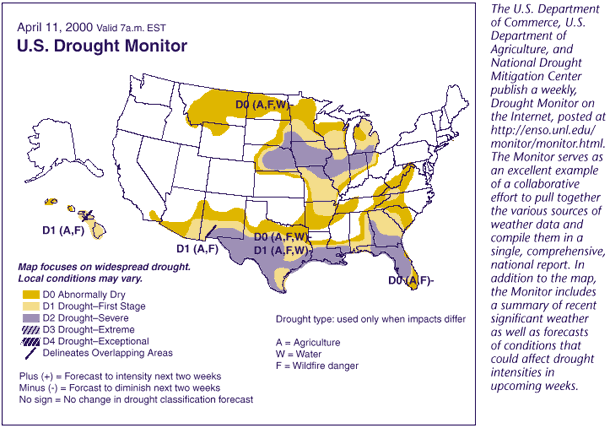|
|
 |
This country also reaps the benefits of high-quality research geared to ensure continued advances in the knowledge and technology that are fundamental to drought preparedness. But we heard that the results of research are not always disseminated in a timely fashion or through easily accessible modes. Research results as well as technology transfers, we were told, are needed for effective drought preparedness and therefore must be made readily and widely available. Insuring Against Drought. It is evident from the information we received and assessments we conducted that even the best preparedness measures will not adequately address some drought-related risks. Small businesses such as marinas and other water-based recreation enterprises, for example, are as vulnerable to the impacts of drought as are farmers and ranchers. Main Street enterprises that rely heavily on income from agriculture or water-based recreation businesses suffer when those businesses lose income. Insurance is one approach that individuals can choose to take on their own. But for drought, the options are limited. The Small Business Administration noted that business interruption insurance is available in private insurance markets. However, it is generally not tailored to the needs of small businesses in drought situations. Small businesses may also lack access to information about the financial and business management strategies that are available to them. Crop insurance has been a central feature of U.S. agricultural policy for decades. And while farmers and ranchers are among the first to feel the impacts of drought, the current federal crop (continue) |
|
|